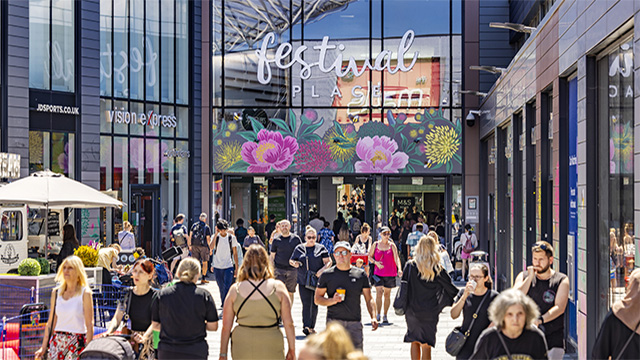Landsec tops sustainability rankings
Landsec was the only FTSE 100 real estate firm that made it into the top 10 in this year’s Carbon Clear’s annual sustainability ranking.
The REIT took fifth place in the rankings with a score of 76%. Hammerson and Barratt Developments made it into the top 20.
Carbon Clear said it had seen positive development and investment in the real estate sector over the past year with more than double the number of companies now providing climate change risk assessments in their 2017 annual reports, up from 33% in 2016 to 80% this year.
Landsec was the only FTSE 100 real estate firm that made it into the top 10 in this year’s Carbon Clear’s annual sustainability ranking.
The REIT took fifth place in the rankings with a score of 76%. Hammerson and Barratt Developments made it into the top 20.
Carbon Clear said it had seen positive development and investment in the real estate sector over the past year with more than double the number of companies now providing climate change risk assessments in their 2017 annual reports, up from 33% in 2016 to 80% this year.
However, it said this was not transpiring to a change in business strategy to account for the impact of climate change.
Carbon Clear chief executive Mark Chadwick said: “Despite all the political sabre-rattling that underpinned the Trump administration’s decision to withdraw the US from the Paris agreement, private businesses and public organisations on both sides of the Atlantic are forging ahead with their sustainability commitments.
“Research into the largest companies in the UK shows that businesses are under increasing pressure, from customers and investors alike, to become more sustainable. The reasons for companies to manage their sustainability – environmental, social and governance issues – are as diverse as they are compelling.
Carrots preferred over sticks
“It’s also becoming apparent that the transition we need to make to a low carbon world, and to manage the most serious impacts of climate change, is happening because of carrots rather than sticks.
“Property companies are increasingly understanding the efficiencies that a well-devised and implemented sustainability programme can bring, balancing social and environmental concern with financial opportunity.
“Understanding the political and economic drivers, and your stakeholder expectations, can help businesses to plan an appropriate response to mitigate the risk of issues such as climate change. This is demonstrated through our 2017 research into the sustainability reporting performance of the FTSE 100, where both retailers and property firms had the highest average sector performance (61%).
“Across the property and retail sectors, the management of enormous commercial estates, whether they be gleaming new urban developments, big-box out-of-town shopping parks, or retrofitted industrial icons, is a huge challenge when it comes to ensuring they are constructed and operated sustainably.
“But this goes far beyond sustainable building design and ensuring that your next new development is ‘BREEAM Outstanding’. It is about embedding sustainability at the very heart of business strategy – from reducing energy or waste, to fostering greater diversity in the workplace, from increasing biodiversity to boosting wellbeing among employees.
“Sustainability issues affect the whole lifecycle of any asset, and therefore it is important that property investment decisions are made responsibly, and that all necessary physical and environmental due diligence is done when assets are acquired, managed or disposed. Indeed, more than double the number of companies in this sector provide a climate change risk assessment in their 2017 annual reports, up from 33% in 2016 to 80% in 2016, showing the importance of assessing impacts on business operations and reporting these to stakeholders.
Sustainable approach
“From commitments to science-based targets on carbon emissions, to the use and generation of renewable energy, companies such as Marks & Spencer and Landsec demonstrate how a sustainable approach transcends their business operations.
“The sustainable best practice of these listed companies, and the cost efficiencies it provides, should act as a catalyst to smaller or non-listed companies to assess their own successes and shortcomings.
“Although our research this year has shown improvements in measurement and reporting performance in this sector, and there are obvious best practice leaders, there is still work to be done. Looking beyond reporting to evidencing emissions reductions and having a robust plan in place to do this will be key in the run up to 2020 and the introduction of the UN international climate agreement.”
To download the report click here.










